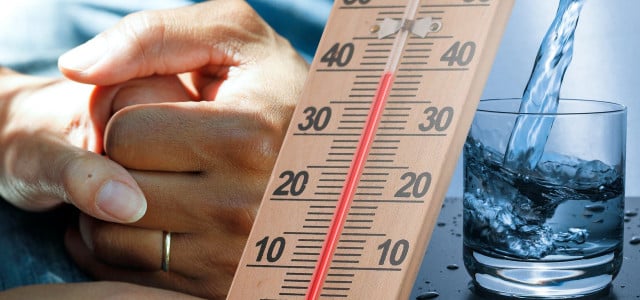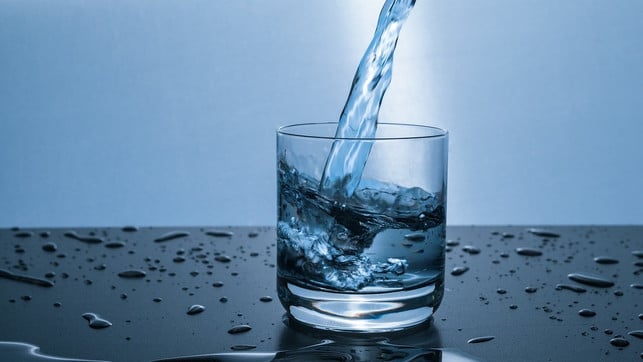
For some, summer heat means pure joie de vivre, a serious danger for others. The health risk increases from 30 degrees Celsius – especially for older people and children. We explain to you who is particularly at risk, what you should pay attention to and how you act properly in an emergency.
At the moment it is hot summer in some regions of Germany, sometimes the values crack the 30 degree mark. While some cheer and enjoy the hot summer days, they are struggling with others in terms of health. Extreme heat contains the lungs, the heart and the psyche – and can become a serious danger. Taking certain medication can also cause heat -related health problems.
Why heat can be so dangerous
If the temperatures over 30 degrees rise, this can become a real problem for many people – not only physically, but also mentally. Heat loads the lungs and cardiovascular system, can lead to concentration disorders, circulatory problems and even organ damage. It becomes particularly dangerous if the body can no longer regulate its temperature through sweating. If it gets warmer outside than the average body temperature of 36 to 37 degrees, the warmth can build up in the body – with potentially life -threatening consequences.
The fact that heat is no longer a harmless weather appearance also shows a look at the statistics: According to Robert Koch Institute, around 3,000 people died of the consequences of extreme temperatures in the heat summer 2023 and 2024 alone-especially older people with previous illnesses. The Federal Medical Association therefore describes heat as the greatest health risk of climate change in Germany.
Heat wave: who is particularly at risk?
Older people, especially over 65 years old, are among the main affected. Many of them are taking medication that suppress sweating – and thus the natural cooling of the body. The ability to regulate temperature is also often limited in people with chronic diseases such as dementia, cardiovascular diseases or lung diseases. For some, the feeling of thirst is simply missing – and thus the drive to drink sufficiently. This can lead to dangerous dehydration.
But not only older people are affected: infants and toddlers are also sensitive to high temperatures. Your body is not yet fully able to regulate the temperature over sweating. And since your fluid requirement is higher than in adults, you get into dangerous areas faster in the heat. Pregnant women, people with overweight, homeless people and people who work physically outdoors are also particularly at risk.
Read more: Heat waves: How hot is too hot for humans?
When the body overheats
What actually happens in the body in extreme heat? If the body temperature increases above 39 degrees, one speaks of overheating. In severe cases, it can rise to over 40 degrees – this is life -threatening. The first warning signs are often headache, dizziness, nausea and muscle cramps. The skin also changes: it gets hot and dry because the body is hardly able to sweat.
If the overheating is not stopped, it can lead to serious symptoms – such as confusion, consciousness disorders or a circulatory collapse. In the worst case, a heat stroke develops – an acute medical emergency that must be treated immediately.
Drink enough – even without thirst
Regular drinking is the most important thing to prevent such situations. Two liters of liquid per day are considered a minimum – more at high temperatures. And distributed that evenly as possible throughout the day, not at once.

It is best to drink a glass of water every hour – even if you don’t have a thirst, the recommendation of the Federal Environment Agency is in its heat. “Recommended drinks in heat: tap water, mineral water, chilled herbal tea without added sugar, tea with mint and lemon. Important: don’t drink ice cold!”
It can be helpful to place drinking glasses in the apartment clearly visible – for example on the bedside table, in the hallway or in the bathroom. Leading a drinking list can also help older people to keep an overview.
Heat ticket: basic rules for heat days
Everyone should protect themselves from the heat – no matter how old they are:
- Keep the rooms cool, only ventilate early in the morning and at night. Keep the windows closed during the day and leave out blinds.
- Drink a lot and eat salty, because when sweating you also lose minerals. On hot days the right thing to eat can help us to endure the heat better.
- Limit activities outdoors to the cooler morning and evening hours. Children should play in the shade.
-
Never leave children and dogs unattended in the car.
- Check skin temperature regularly in infants, toddlers and older people, cool with damp cloths if necessary.
This is also good: rub the body with a cool, damp cloth, wet with water spray or directly make moist envelopes on arms, legs or neck. Cold foot and hand baths stimulate the circulation.
Recognize heat stroke: you should take these symptoms seriously
A heat stroke can be life -threatening – so it is crucial to recognize the first signs in good time. If someone complains about dizziness, weakness, headache or muscle cramps, this could already indicate an overload of the body through heat. Nausea and unusually hot, dry skin – a lack of sweat – are also clear warning signals.
If the situation becomes more serious, confusion, language disorders or disorientation are often shown. A very fast pulse, flat breathing or unconsciousness can also occur. Then every minute counts: those affected must immediately be brought into the shade or a cool room, chilled with water and – if necessary – the emergency call (112).
Read more on utopia.de:
- Sleep in the heat: 12 frequent mistakes that make you sleep more worse
- 7 Frequent mistakes that you should avoid in the heat
- Cooling apartment without air conditioning: tips & tricks
** marked with ** or orange underlined Links to sources of supply are partially partner links: If you buy here, you will actively support Techzle\.com, because we will then receive a small part of the sales proceeds. More information.